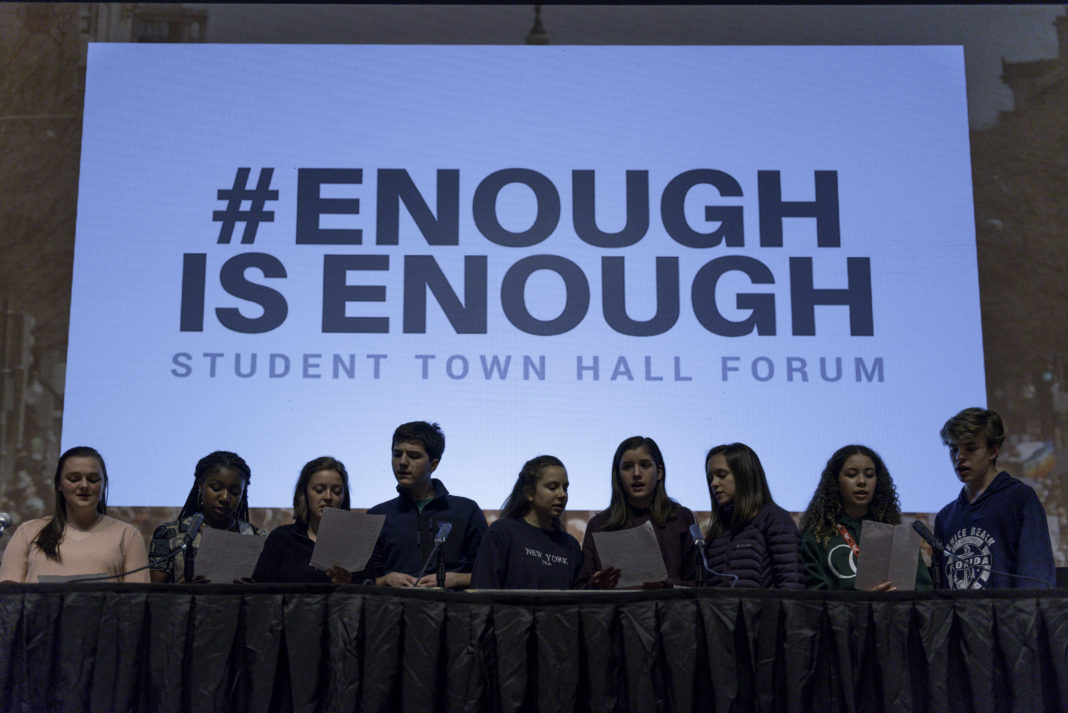The City of Portland is threatening organizers of Portland’s short-lived Village of Hope houseless community with fines potentially totaling tens of thousands of dollars after city officials swept the camp in early February 2018.
The fines VOH founder and local pastor Steve Kimes and organizers Lisa Lake and Ree Campbell received include $55,000 for the January 2018 removal of VOH platforms and personal belongings from the Big Four Corners natural area, an unknown fine for removal of the Forgotten Realms Camp in December 2016, and an alleged threat of criminal mischief charges for the VOH occupation.
City Commissioner Amanda Fritz informed Kimes of the fines during a February 2018 meeting in which Fritz agreed to use her staff to look for city-owned land for the village.
During the meeting, Lucas Hillier, Portland State alumnus and program coordinator at the city’s Office of Management and Finance, also asked Kimes to sign a property release document that would allow him to reclaim property removed in the sweep if he agreed to not place retrieved belongings on city-owned land again without written permission.
Kimes refused to sign and sent the document to American Civil Liberties Union of Oregon Legal Director Mat dos Santos. Santos did not respond to a request for comment, but Kimes said he was advised not to sign anything until Santos read over the documents.
Ree Campbell, executive director of houseless advocacy group Boots on the Ground PDX and unofficial communications director for VOH stated in a Facebook post that Hillier came to her home in Southeast Portland and threatened her with similar fines on Friday, Feb. 2, just hours after the VOH sweep. Campbell did not provide documentation of the fines or what she claimed was a threat of criminal mischief charges, but said the fines were similar to those brought against Kimes.
“[The fines] would equate to bankruptcy and homelessness for my family,” Campbell wrote. “That threatens my children’s well-being by reducing their chances of any success in life. Furthermore, [Hillier] threatened my well-being by promising criminal charges which would follow me for the rest of my life, reducing my chances of future housing [and] employment.”
Campbell said she does not fully blame Hillier for the fines, however. “[Hillier] actually does care about houseless people,” Campbell clarified in an interview. “He has two little kids, he has $60,000 in student loans, and I think he didn’t really have a choice. I think his job is always in danger…He has a lot at stake, and [Hillier was sent to my home] because of the inroads of the relationship that we have.”
Campbell said she has worked extensively with the city, primarily with Hillier, to give city officials access to her nonprofit connections in the winter months and act as a mediator during camp sweeps. She believes Mayor Ted Wheeler sent Hillier to speak with her because “[the city] knew I wouldn’t allow anyone else in my home.”
Hillier has come under criticism in the past for ridiculing a Lents neighborhood resident who expressed concern about houseless people moving to the neighborhood following the 2016 Springwater Corridor sweeps.
Campbell added she believes the alleged threat of a criminal mischief charge came because Wheeler treated VOH—which originally called itself Protest Camp—like other camps, rather than a political protest.
“We broke no laws!” Campbell wrote in her post. “[VOH] is a social justice movement in support of our houseless community. At no time was any law on the books broken, and the mayor’s office has responded to us viciously, arbitrarily and with a complete disregard for in-place laws, due process [and] our freedom to protest.”
In response, Wheeler wrote in a statement, “As we have pursued different iterations of alternative shelter, the City has also learned hard lessons about what can go wrong when an unsanctioned camp operates without sound management or accountability standards.”
The statement continued, “Consider the ‘Forgotten Realms’ camp, which put lives in danger as well as causing more than $100,000 in claims for damages to private properties nearby.”
Kimes and Campbell both helped organize the Forgotten Realms camp in North Portland, which was swept in January 2017 after a faulty camp stove caught fire and damaged a nearby home.
Campbell said VOH differed from Forgotten Realms because VOH had an organized system for vetting residents, providing security and cleaning up garbage. That was not the case for Forgotten Realms, Campbell claimed.
“Our position remains that it is inappropriate for a political protest—which is how Village of Hope labels itself—to unilaterally erect permanent structures on environmentally sensitive public lands that are intended for use by everyone,” Wheeler’s statement concluded.
Campbell said she stands by the belief that organized camps are the solution for Portland’s housing crisis until the city can come up with a better solution to get people off the streets. Other organizers agree.
Since VOH was shut down, Southeast Portland’s Central Nazarene Church, together with Cascade Clusters, the Village Coalition and Agape Church of Christ, has begun drawing up plans for another houseless village on its own property.
According to CNC Pastor Matt Huff, The Agape Village has no proposed opening date, but aims to supply shelter, showers and a communal gathering area for residents.
As for Campbell, she is stepping away for the summer until colder weather threatens people living on the streets. “When winter comes, of course it’s all hands on deck,” Campbell said, “but aside from that, I’m just so disgusted and hurt.”








One thing I find disconcerting is the dollar value placed upon the supposed clean up for this one colony.. The city has placed a valuation of $55,000 on this single camp displacement but does not want to publish the amount that it spends week after week of constantly initiating the dozens of sweeps it conducts monthly. This way, the public can’t compare the wasted money spent on the useless sweeps versus what it spends on more valuable actions like affordable housing. That leads people like me to wonder if perhaps the money spent on sweeps might actually be a quite large amount, and could actually fund really housing instead.
Listed below this paragraph is the city’s own interactive map of campsites. You can see how many camps are reported and how they move after sweeps. The people swept do not go away: they merely are forced to relocate so that the city then finds them again, and re-sweeps them. Sweep, rinse, repeat. I fail to see any solution in this activity.
http://pdx.maps.arcgis.com/apps/TimeAware/index.html?appid=ac6a6abf1092482190984a5df9dfacb0
Secondly, the statement from Mr. Wheeler states that the propane fire from a faulty camp stove at Forgotten Realms led to more than $100,000 in claims of damages to private, nearby properties, of which there is but one. Have these claims been litigated since that fire, which happened long ago? If so, what was the actual judgement? To whom were the damages paid, and by whom? It is interesting to note that the property upon which this colony was erected was opposed as a suitable location by the previous mayor because it was earmarked for an expansion of city services, and yet it is still now just bulldozed and surrounded by a chain link fence, as vacant as it ever was.
If you believe anything that the five members of this gang tell you, you be a fool. Wheeler is a republican at heart and runs this city out of fear. Amanda is somewhere in the fog and has not figure out how to get out. Fish is very busy running for re-election and Saltzman remains out to lunch, Chloe is just pouting. One must never trust a politician, watch what they do.